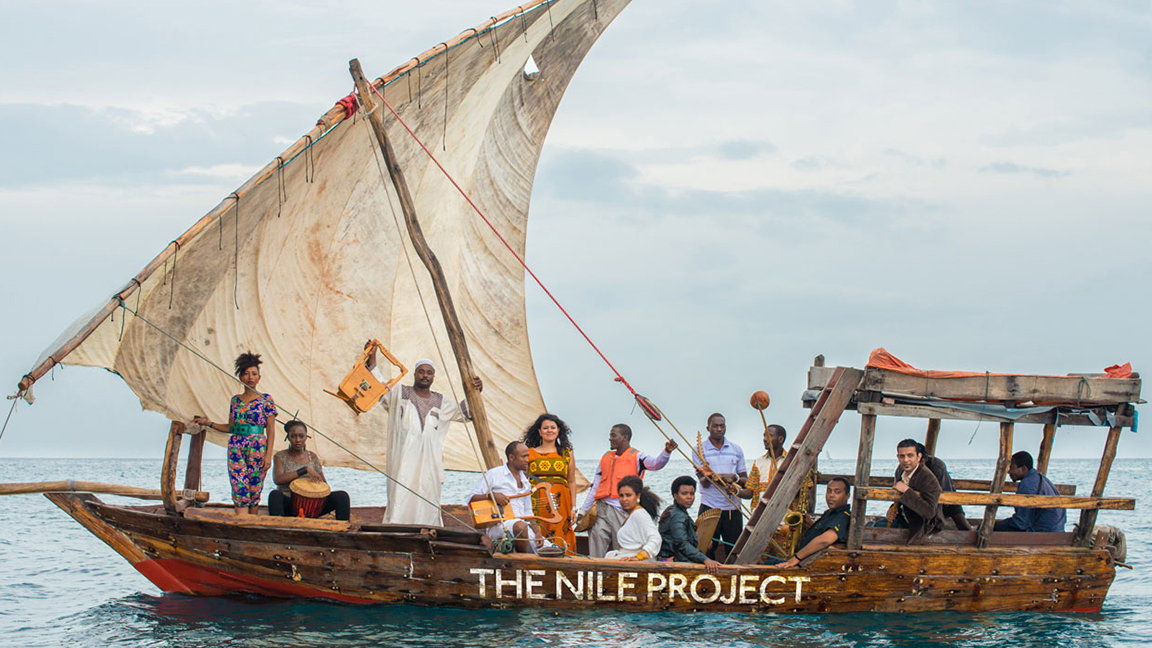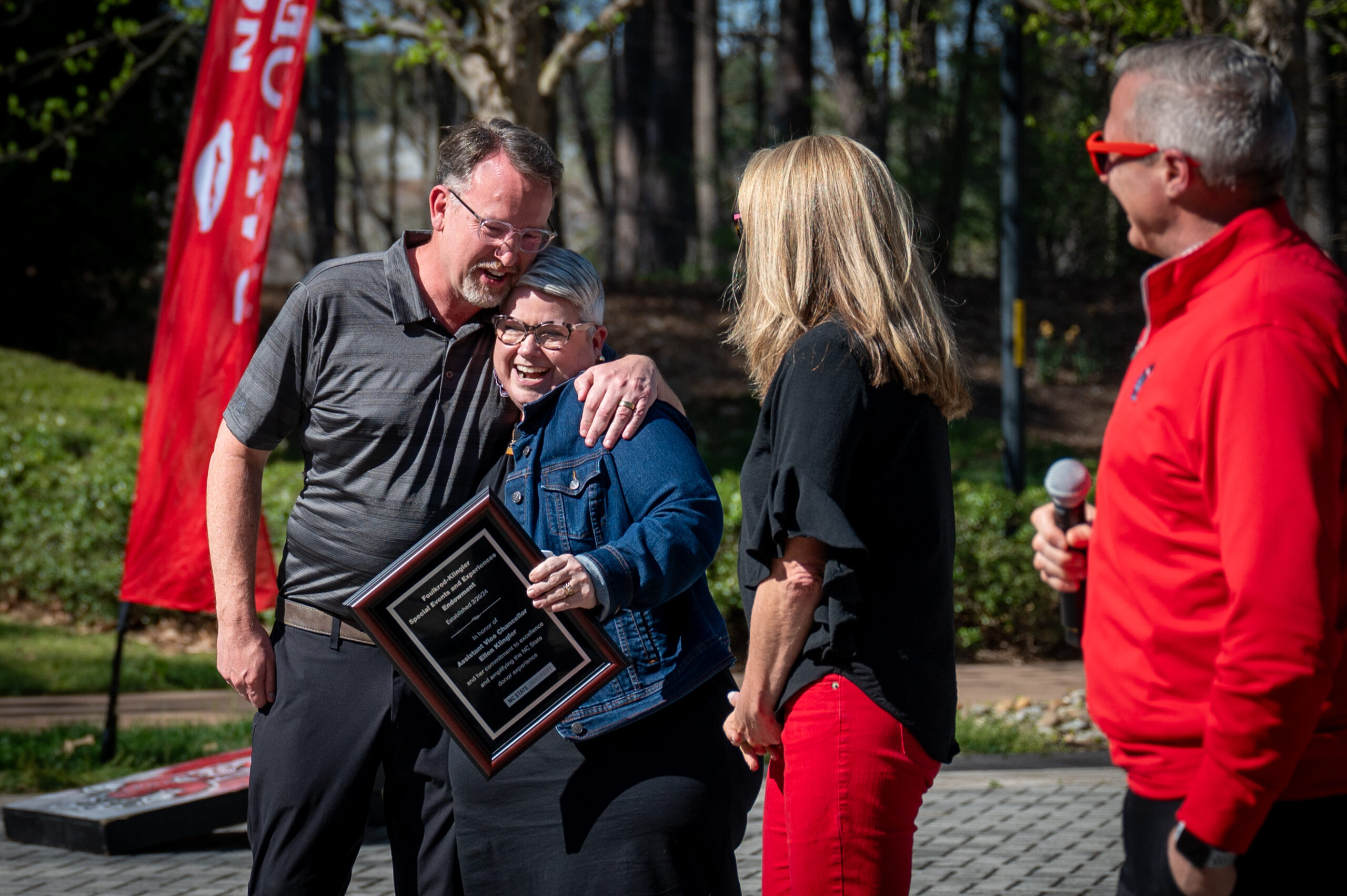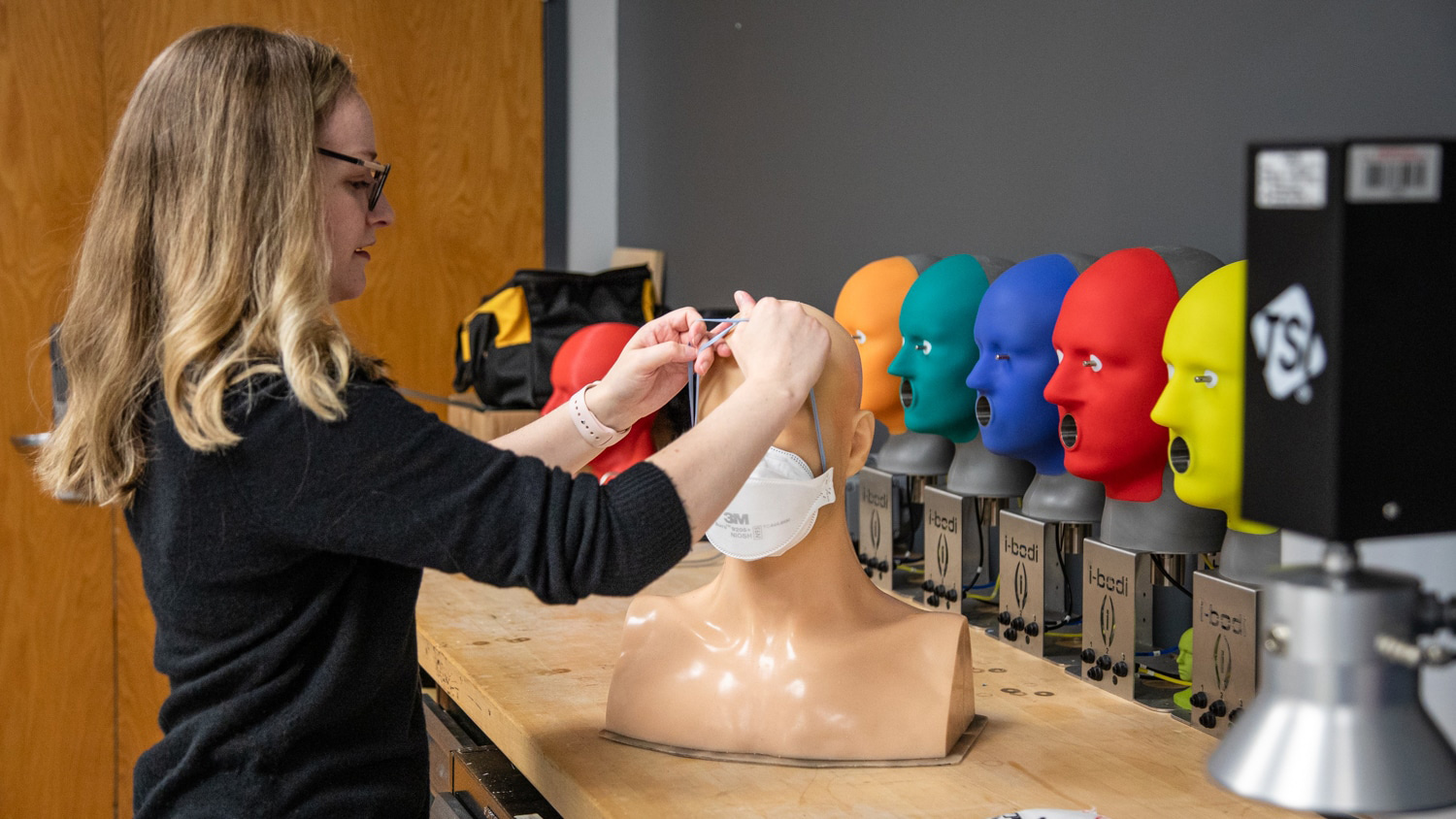The Nile Project at NC State

Imagine a music concert that sparks dialogue, unites cultures and encourages social change.
When NC State University brings the Nile Project to campus on March 15, it’s expected to do just that. And the concert itself is just the beginning, launching a week of activities and dialogue — and encouraging students to be change-makers in the world.
The Nile Project continues NC State LIVE’s 44-year tradition of bringing to campus performing artists who, according to its website, “reach beyond the stage to enrich the lives of our community members with meaningful educational experiences.”
True, the Nile River is half a world away, but the lessons taught through the Nile Project have applications here at home, said Sharon Moore, director of NC State LIVE. While it’s an artist-based project, she said the Nile Project has a number of meaningful touchpoints for the university, bringing a model for change to the campus community.
“It is a beautiful example of how the arts programs here can be a resource to the university as a whole,” Moore said.
Funding to bring the Nile Project to campus would normally be beyond the means of NC State LIVE, Moore said. NC State LIVE secured outside grants from the North Carolina Arts Council and South Arts, a regional nonprofit headquartered in Atlanta serving art organizations and individual artists, as well as on-campus support through grants from the Sustainability Fund and the NC State University Foundation.
The efforts to bring the Nile Project to campus reflect a larger effort by the Division of Academic and Student Affairs (DASA), of which NC State LIVE is a part. DASA, which comprises the experiences that help students be successful outside of the traditional classroom, is working to lessen the burden on students and increase their opportunities by growing private support, especially through endowments and other sustainable sources of funding, according to Jill Orr, director of development for Arts NC State.
The Nile Project visit serves as just one example of arts outreach at NC State. In Moore’s opinion, funding for arts outreach on campus allows the community to experience a different form of inspiration and creativity, and helps participants think outside the box, she said.
“We’re letting students know these opportunities exist and they can take part,” Moore said. “It enables and empowers what they do in the classroom.”
At more than 4,000 miles long, the Nile is the longest river in the world and affects the political, economic, and social lives of 462 million people living in the 11 countries through which the Nile flows. While each country has its own economic plans for the Nile to promote economic growth and alleviate poverty, the nations do not share a unified vision. Historically, rather than engage in dialogue and partnership, according to information provided by the Nile Project, these countries tend to view each other as adversaries, leading to mistrust.
Enter the Nile Project, whose mission is to “transform the water conflict in the Nile Basin by inspiring, informing and empowering Nile citizens to collaboratively foster the sustainability of their shared ecosystem.”
By bringing together artists from the 11 Nile countries in multiweek residencies “to compose new music featuring diverse instruments, languages and styles indigenous to the world’s longest river,” leaders of the project say performances inspire cross-cultural empathy and serve as an example of how collaboration could transform the Nile water conflict.
Since it was founded in 2011, the Nile Project has performed 75 concerts internationally and held workshops at 40 universities.
NC State is still finalizing plans for March, but Moore said buy-in at the university and beyond has been overwhelming. Units across campus with interests in topics including sustainability, social entrepreneurship, conflict resolution and world music see the Nile Project as an opportunity to serve the work of multiple colleges and departments.
Students and faculty can expect a weeklong series of events, beginning on March 15 with the Nile Project concert in Stewart Theatre and preshow discussion with Mina Girgis, co-founder of the Nile Project, and ending on March 21 with an outdoor public concert.
In between, “we’re programming as much as we can in a week,” Moore said. For example, a daylong student leadership retreat with Girgis, the Nile Project musicians and faculty will explore topics such as cross-cultural collaboration challenges and opportunities, self-organizing systems and resilience across disciplines, according to Moore.
The visit coincides with the Water Resources Research Institute (WRRI) of the UNC System’s annual conference on March 15-16 at NC State’s McKimmon Center. WRRI has invited NC State LIVE and the Nile Project to participate in the conference to share the Nile Project’s message of collaboration. Girgis will deliver the keynote address and the Nile musicians will host an interactive lecture on the topic of “Musical Collaboration and Water Cooperation.”
At the most basic level, many of the artists brought to NC State through programs such as this one provide workshops for students, giving them the opportunity to engage with these artists in a way that might not otherwise be possible.
On the whole, each arts outreach program is offered as a service to the campus and the community, Moore said, and does not generate revenue.
“The only way this kind of work happens is through grants, foundations and other funding sources,” she said.
- Categories:


